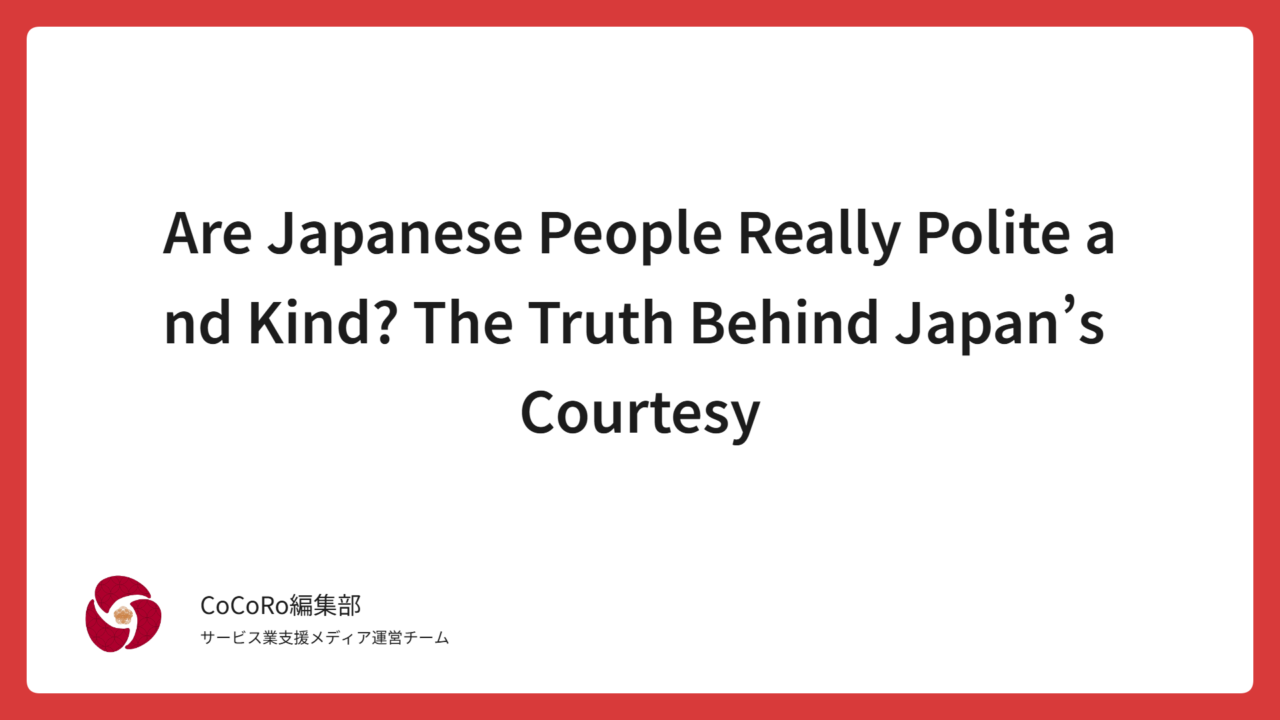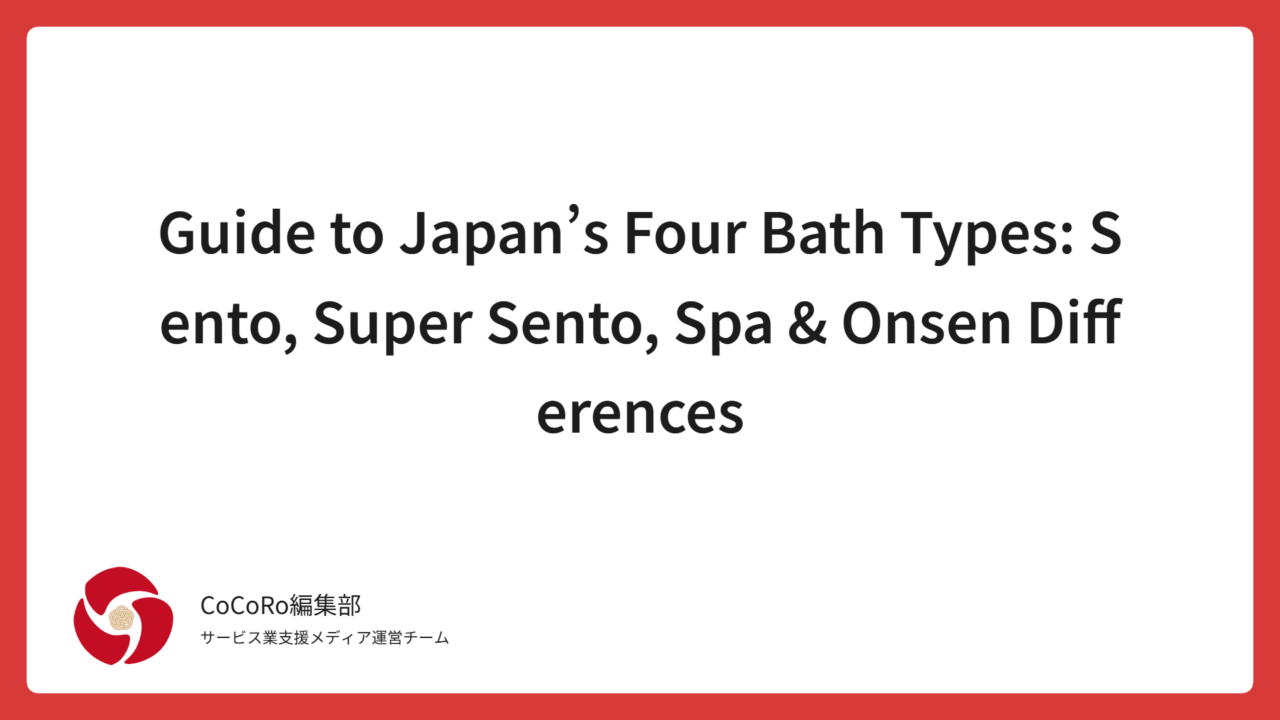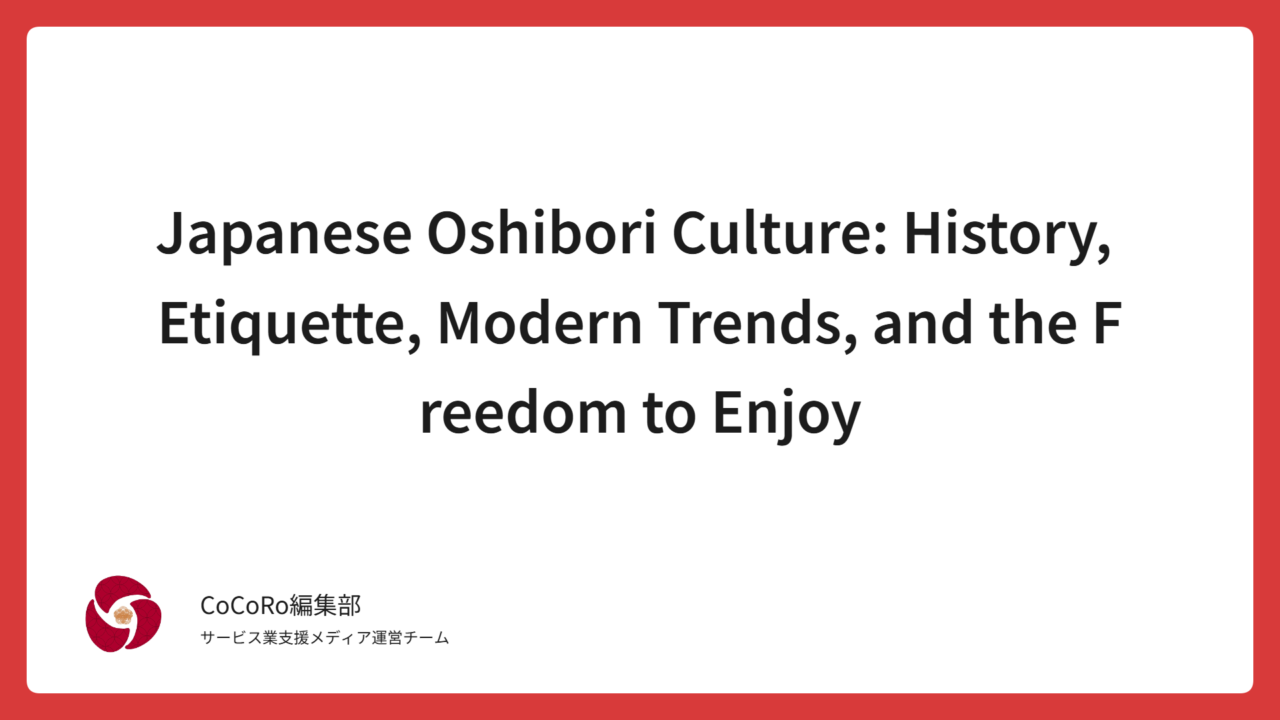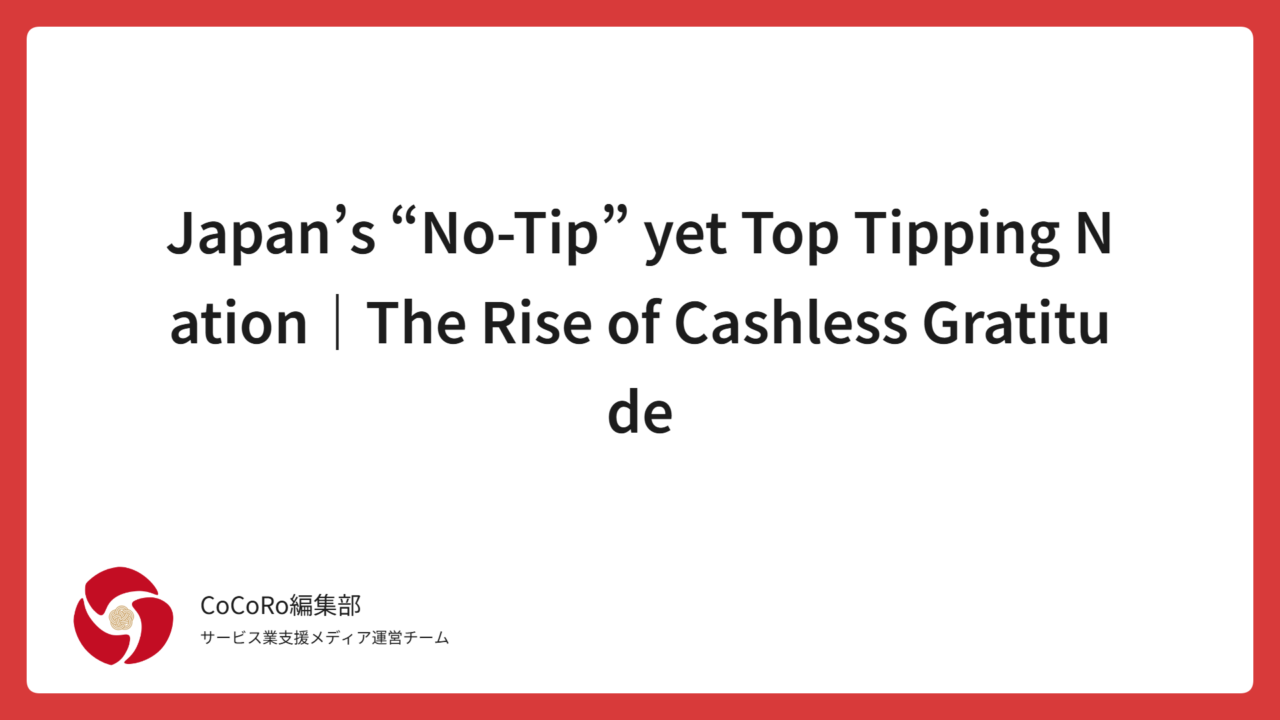

- Introduction: Why Are Japanese People Considered Polite and Kind?
- Section 1: Japanese Etiquette Is Not About Kindness — It’s a Social Lubricant
- Section 2: The Motivation for Kindness — Not Pure Altruism, but Avoiding Discomfort
- Section 3: Japan’s Orderly Society Is Sustained by Logic and Custom, Not Just Politeness
- Section 4: Japan’s Focus on Sincerity — Trust as a Shared Social Asset
- Section 5: The Friendliness of Japanese Workers Comes from Emotion, Not Manuals
- Section 6: The Quiet Goodness of “Not Doing to Others What You Dislike”
- Conclusion: We Don’t Think We’re Doing Anything Special — But It Feels Good to Be Appreciated
Introduction: Why Are Japanese People Considered Polite and Kind?
Many visitors to Japan say that Japanese people are polite and kind wherever they go.
They quietly line up for trains, respond with care in stores, and return lost items without hesitation.
These ordinary scenes, shared through social media and travel reviews, have helped shape Japan’s global image as a “kind and courteous nation.”
However, many Japanese people themselves feel puzzled by this reputation.
They often think, “We’re not doing anything special.”
So why do people from abroad perceive Japanese as exceptionally polite and kind?
When we look closer, we find that the reasons go beyond simple kindness or virtue — they reveal a more practical and human side of Japanese culture.
Section 1: Japanese Etiquette Is Not About Kindness — It’s a Social Lubricant
Japanese etiquette does not necessarily exist to show respect toward others.
Rather, it functions as a social lubricant designed to avoid conflict and maintain harmony in any situation.
For example, the use of honorific language (keigo) or bowing in the workplace is less about expressing respect or affection, and more like a linguistic protocol that keeps relationships smooth.
These customs serve as shared rules that allow interactions to proceed calmly without friction.
In Japan, “not being rude” is almost the same as “being polite.”
In other words, politeness is not an act of elevating others — it is a form of behavioral optimization that prevents unnecessary disturbance.
This shared awareness of not “disrupting the atmosphere” is what ultimately creates Japan’s reputation as a polite society.
Section 2: The Motivation for Kindness — Not Pure Altruism, but Avoiding Discomfort
When people say “Japanese are kind,” many Japanese respond with a shy smile and say, “Not really.”
In reality, most Japanese people do not act out of a strong sense of duty to help others.
More often, the motivation is a form of discomfort avoidance — feelings like “It would be awkward to ignore someone in trouble” or “I’d feel embarrassed to pretend not to notice.”
For example, when a Japanese person helps a lost tourist, it’s not necessarily because they are inherently good-hearted.
It’s simply because ignoring someone struggling right in front of them feels emotionally unsettling.
Of course, when that person smiles or says “thank you,” it brings genuine happiness — but that joy is a byproduct, not the goal.
Over time, these small acts of “resolving discomfort” accumulate across society,
creating the image that “Japanese people are exceptionally kind.”
In other words, Japanese kindness is not an idealistic virtue but a social habit,
not an obligation but a way to maintain emotional balance.
Of course, not everyone behaves this way.
There are people who are indifferent to others or even inconsiderate.
However, the majority of people feel ashamed or uneasy when they act selfishly or appear cold,
and that majority sentiment sustains the appearance of a kind and harmonious society.
Section 3: Japan’s Orderly Society Is Sustained by Logic and Custom, Not Just Politeness
The order observed in Japan’s streets and public transportation is often described as a result of politeness.
In reality, however, it is supported even more by logic and long-standing custom.
Letting people exit a train before boarding is not simply polite — it’s efficient.
Avoiding line-cutting is not necessarily about caring for others, but about avoiding trouble for oneself.
If too many people ignored the rules, chaos would follow, and everyone — including oneself — would suffer.
Thus, there is a silent understanding that following the rules benefits everyone.
Because this sense of practicality is deeply ingrained, most Japanese people don’t feel restricted by rules — they find comfort in them.
As a result, politeness in Japan functions not just as etiquette, but as a naturally efficient social structure.
Section 4: Japan’s Focus on Sincerity — Trust as a Shared Social Asset
Higher prices in tourist areas are not a sign of greed but simply a reflection of economic reality.
As rents, labor, and supply costs rise, “tourist pricing” naturally emerges — a phenomenon seen all over the world.
What makes Japanese people uncomfortable is not the price itself, but the lack of transparency behind it.
In other words, the issue is not about money, but about sincerity.
Many foreign visitors come to Japan with an image of honesty and politeness.
However, when they encounter unclear pricing or unfriendly treatment, that trust can shatter instantly.
And once such experiences spread on social media, even isolated cases can harm the reputation of Japanese society as a whole.
In many other countries, breaches of trust are seen as the fault of individuals, companies, or politicians.
In Japan, however, there is a widely shared belief that one person’s dishonesty reflects on everyone.
People often say, “As a fellow Japanese, it’s embarrassing,” or “That kind of behavior makes Japan look bad.”
Thus, sincerity in Japan is not simply a moral virtue, but a collective awareness to protect social trust.
It is less about idealism and more about a natural form of self-preservation.
For the Japanese, sincerity represents an invisible brand of trust shared by the entire society.
Section 5: The Friendliness of Japanese Workers Comes from Emotion, Not Manuals
When people working at convenience stores or restaurants greet customers with a smile,
it isn’t because the manual tells them to — it’s because they want to feel good about their work.
Many employees simply think, “If I’m going to work, I’d like to finish the day with a good feeling.”
When a customer smiles back, they feel genuinely uplifted.
This emotional feedback loop is what sustains Japan’s unique service culture.
In other words, friendliness in Japan is less about serving others and more about maintaining one’s own emotional balance.
Yet the result is the same — customers feel comfortable and appreciated.
These small, repeated moments collectively create Japan’s global image of politeness and care.
The kindness seen in Japanese hospitality is not a product of manuals or training programs,
but rather an extension of a personal desire to live and work with emotional harmony.
Section 6: The Quiet Goodness of “Not Doing to Others What You Dislike”
Many Japanese people naturally live by the idea: “Don’t do to others what you wouldn’t want done to yourself.”
This is not a moral code defined by religion or law, but a form of emotional ethics cultivated through daily life.
People simply think, “I don’t want to make someone uncomfortable,” or “I wouldn’t like that, so I won’t do it.”
This modest way of thinking has become second nature to much of Japanese society.
Of course, not everyone behaves this way.
There are people who act selfishly or prioritize short-term gain.
Yet Japanese society maintains its sense of order because the quiet goodwill of the majority shapes the atmosphere.
This social atmosphere — where people are aware of how others feel — forms the foundation of what outsiders perceive as a “kind and considerate society.”
Conclusion: We Don’t Think We’re Doing Anything Special — But It Feels Good to Be Appreciated
Japanese people rarely feel that they are doing anything special.
Politeness and kindness are behaviors naturally learned through society, not the result of conscious effort.
That is why many feel a little embarrassed when foreigners say, “You Japanese are so kind.”
Most would probably think, “It’s really not that big of a deal.”
At the same time, when people realize that their small, everyday actions
bring someone comfort or a smile, they can’t help but feel happy.
It’s not a sense of pride, but rather a quiet satisfaction —
the feeling that one’s ordinary life has had a gentle, positive effect on others.
Japanese politeness and kindness are not matters of virtue or obligation,
but rather everyday wisdom — a way of living that allows both oneself and others to feel at ease.
Because it isn’t something extraordinary, it feels natural, and thus has endured through generations.
This quiet sense of harmony is perhaps the true reason why the world sees Japanese people as polite and kind.






